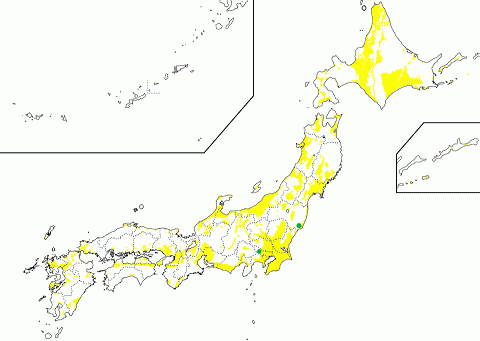Coal
Biological Process
Required Geological Setting
Neogene and Quaternary sediments, Paleogene and older sediments
Occurrence
Carbon-rich plant fossils mainly composed of aromatic hydrocarbons. Plants are mainly composed of aliphatic hydrocarbons such as cellulose and lignin, and the content of oxygen and hydrogen is decreased by diagenesis to be aromatic hydrocarbon-rich coals. Coals are classified to sub-bituminous coal, bituminous coal, and anthracite coal in ascending order of the rank of coal. These coals are higher rank of coal containing more aromatic hydrocarbons than lignite. Bituminous coal is formed by decarboxylation of lignite, and anthracite coal is formed by demethanization of bituminous coal. Carbon content of anthracite coal is more than 90 %. Lignite is generally produced in the Neogene strata, bituminous coal in the Mesozoic strata, and anthracite coal in the Paleozoic strata. The island arc of Japan is an exceptional example where bituminous coal is produced in the Neogene strata and anthractite coal in the Mesozoid and Paleozoic strata. This is considered as a result of higher geothermal gradient in the volcanic island. The Japanese Industrial Standards (JIS) defines sub-bituminous coal as its calorific value is 7300-8100 kcal/kg and fuel ratio (Solid-state carbon/volatile component) is lower than 1.5, bituminous coal as its calorific value is higher than 8300 kcal/kg and fuel ratio (Solid-state carbon/volatile component) is lower than 4.0, anthracite as its calorific value is higher than 8400 kcal/kg and fuel ratio (Solid-state carbon/volatile component) is higher than 4.0. The vitrinite reflectance is 0.4-0.6 % for sub-bituminous coal, 0.6-1.6 % for bituminous coal, and more than 1.6 % for anthracite.

Distribution of coal described in this site. Yellow is Paleogene, Neogene and Quaternary sediments.
Mineral Assemblages
Sub-bituminous coal, Bituminous coal, Anthracite, Pyrite, Siderite